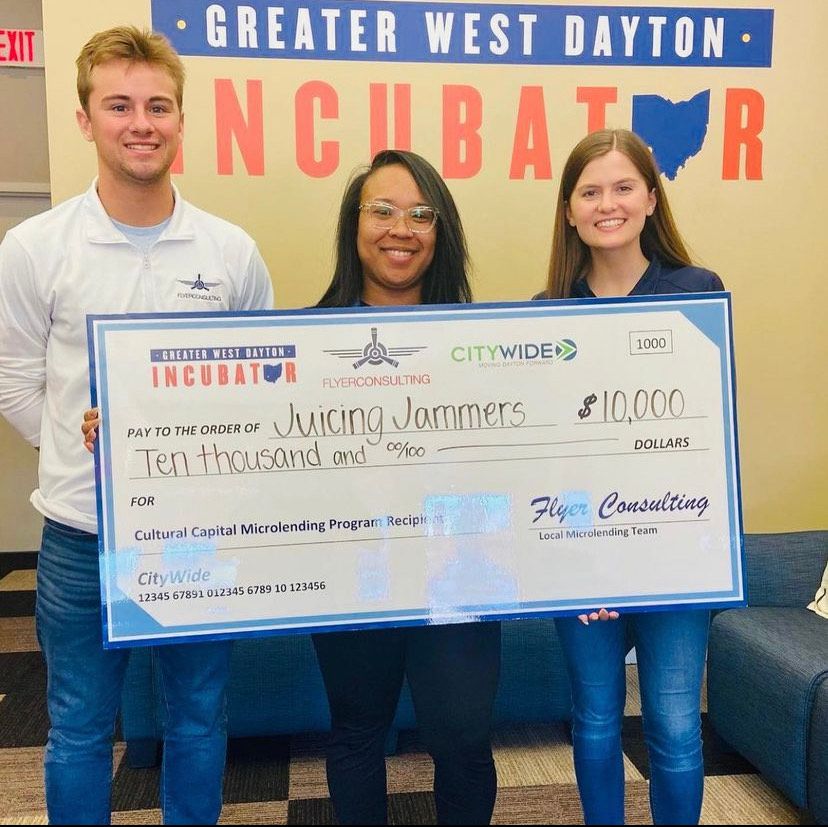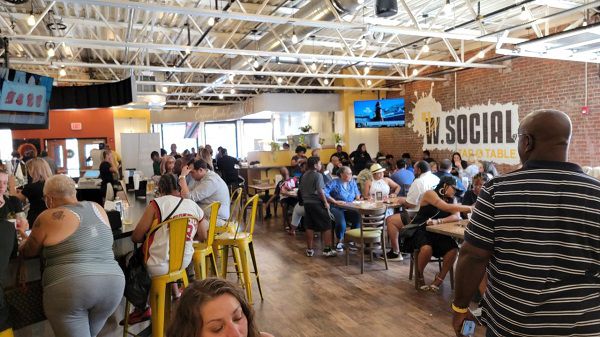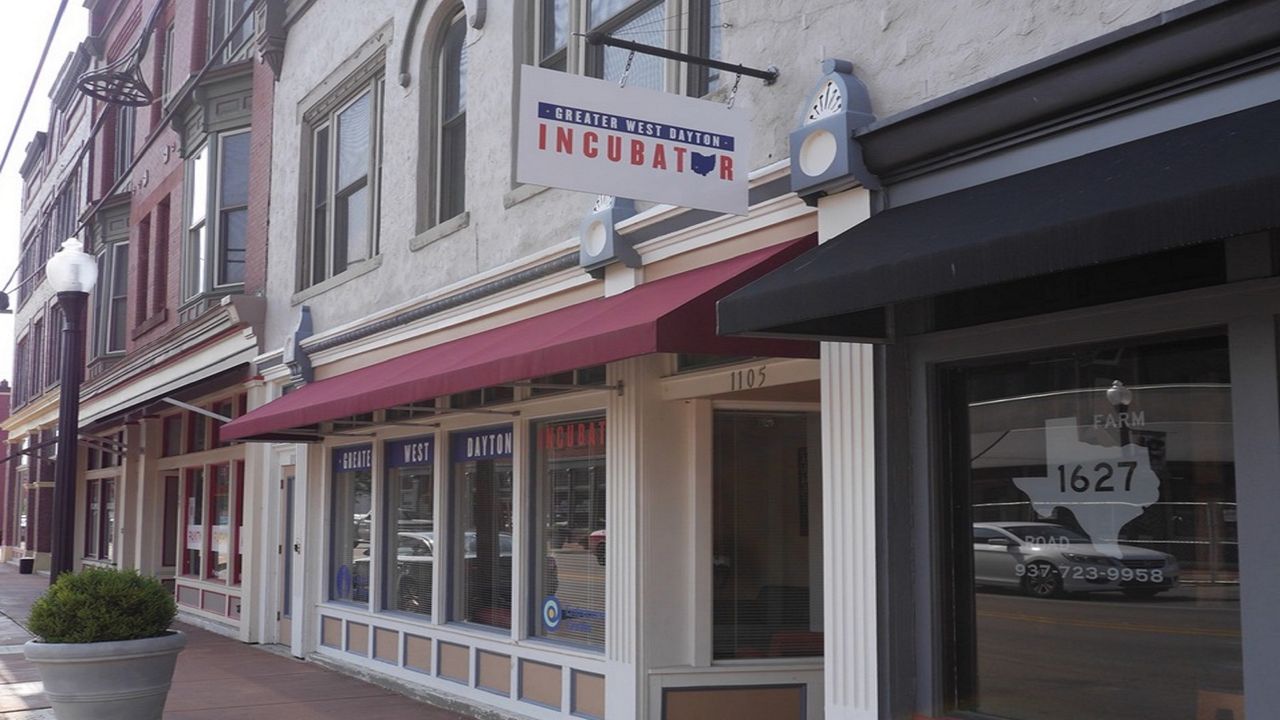DAYTON, Ohio — A local business incubator is offering a fresh round of microloans to support Black, women and other underrepresented and under-resourced business owners serving the west side of Dayton.
What You Need To Know
- Applications for Greater West Dayton Incubator microloans are open until Oct. 14
- Loans range from $500 to $1,5000, and go to small businesses benefitting the West Dayton community
- West Dayton endured decades of disinvestment, and this program and others aim to help the city's west side adapt to a changed economic environment
- The microloan program targets Black, women and other underrepresented and under-resourced business owners
The Greater West Dayton Incubator is currently accepting applications for Cultural Capital microloans. Applications are due by Friday, Oct. 14.
Loans can range from $500 to $15,000. Funds can go toward operating expenses, marketing and other costs of running a business.
The incubator team evaluates applications based on more flexible criteria than traditional banks. They place an emphasis on what’s described on the incubator’s website as “passion, persistence and planning.”
The program is open to anyone who qualifies, but the focus is on underserved entrepreneurs in the region. A preference is given to those who live in Greater West Dayton or who have a business serving that part of the city.
Loans received through the program must be repaid.
“These microloans help create more equitable economic opportunities for business owners who have been historically marginalized,” Whitney Barkley, director of the Greater West Dayton Incubator, said in a statement. “They allow entrepreneurs who might not seek funds from a traditional bank or the Small Business Administration to hire, buy needed equipment, open brick-and-mortar locations and more to lift not only their businesses but our local economy and community.”

To date, the incubator has distributed more than $50,000 to local entrepreneurs for businesses that range from janitorial and beauty to retail and food.
One business that’s already benefited from one of these loans is Juicing Jammers, a juice and smoothie bar. It makes small-batch, slow-pressed juices, and food items such as overnight oats, fruit bowls and salads. Each dish contains ingredients known to help manage health conditions such as diabetes and heart disease, according to the business’s owner, Tawnni Miles.
Miles, a registered nurse, received a $10,000 loan through the incubator’s Culture Capital program. She used the money to buy commercial equipment for her first storefront on North William Street in the Wright-Dunbar District.
“(The loan) helped a lot,” admitted Miles, who said she funded the first five years of her business out of her own pocket. She applied for the microloan because she knew opening a storefront would take more money than she had at her disposal.
Beyond just issuing loans, the Culture Capital program offers entrepreneurs other support services, such as helping business owners work through the loan process or by providing financial wellness education.
Culture Capital offers these services through a partnership with local nonprofit CityWide and a University of Dayton’s student-run business support firm, Flyer Consulting.
“Getting a loan was very intimidating to me,” Miles said. “I believe a lot of people have the same fears I had starting out.”
An investment in the businesses and residents of West Dayton
The microloan program and Greater West Dayton Incubator serve a part of the city that had suffered from decades of disinvestment.
The West Dayton area comprises a collection of 19 neighborhoods — Arlington Heights, Carillon, Edgemont, Fairland, Five Points, Germantown Meadows, Highview Hills, Lakeview, Little Richmond, MacFarlane, Madden Hills, Miami Chapel, Pineview, Residence Park, Roosevelt, Stone Ridge, Westwood, Wolf Creek and Wright Dunbar Village.
Veronica Morris, economic development supervisor for the city, noted that much like other areas of Dayton, the west side communities have been affected in the past decade by a loss of jobs and changing industries.
“Dayton as a whole went through a transition from being a heavily automotive manufacturing city to one looking at other types of industries such as health care, education, and advanced manufacturing,” Morris said.
Through a mix of city-community partnerships, major investments have been made in recent years to address the needs of the evolving west side.
In the past three or four years alone, West Dayton benefitted from $110 million worth of investment, leading to considerable increases in home values in several neighborhoods and new employment opportunities for existing and new residents, Morris said.
She noted a $34 million investment by Five Rivers Health Centers in Edgemont, as well as Economy Linen and Towel Service's $21 million facility that brought about 85 jobs and residents to West Dayton.
Morris also highlighted West Social Tap and Table, a food incubator that’s providing small food businesses with an opportunity to grow and develop, while also improving the quality of life for residents by offering new dining options.
“For the last several years, new economic opportunities have steadily been moving beyond the urban core into West Dayton,” said City Commissioner Christopher Shaw. “I’m thrilled about the growth in jobs and new development we’re seeing in West Dayton that will benefit long-time residents and new ones alike.”
A city 'built on the backs of entrepreneurs'
While large investments are important to West Dayton's continued resurgence, Morris feels small businesses have a vital role to play as well.
“Dayton was built on the backs of entrepreneurs,” she said, adding that entrepreneurs and small business owners continue the “spirit of innovation showcased by the Wright Brothers and Charles Kettering.”

Those businesses also provide the city’s residents with stable employment opportunities, Morris said. The owners of those businesses also tend to be local, she said, which means they have an extra level of investment in the community.
To help make the most of the investments in those small businesses, leaders from the University of Dayton collaborated with residents to create the Greater West Dayton Incubator. It opened in 2020 amid the COVID pandemic, so it didn't get to celebrate its official grand opening until Dec. 2021.
Inspired by the university’s religious values, the incubator places special consideration on helping low-income residents, main street and lifestyle businesses. It also looks for “social ventures that advance the common good,” according to the incubator’s website.
The incubator gives preference to entrepreneurs and business owners who have taken part in one of the other Greater West Dayton Incubator programs or services.
Miles, for instance, learned about the loan opportunity through the Greater West Dayton Incubator’s Business Blitz and other programs.
Those interested in applying for a Cultural Capital microloan can do so online at thegwdi.com.



